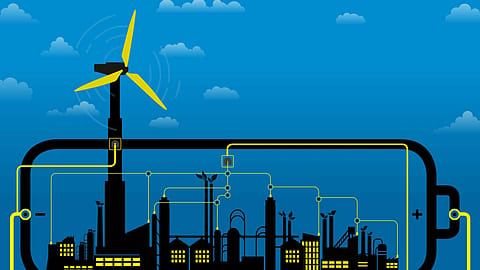AI, an energy guzzling tech at odds with climate change plan: Economic Survey
The Economic Survey 2024 highlights that India, despite making significant strides in climate action, often faces criticism for not aligning with Western solutions.

The Economic Survey 2023-24, presented by Union Minister for Finance and Corporate Affairs Nirmala Sitharaman in Parliament today, delivers a stark message: the prevailing global strategies for climate change are flawed and not universally applicable.
A central issue raised in the survey is the explosive growth of artificial intelligence (AI) — a world-changing technology with a significant downside: its voracious appetite for consuming energy at unprecedented rates.
The document highlights that India, despite making significant strides in climate action, often faces criticism for not aligning with Western solutions. It further goes on to point out inherent inconsistencies where the prescriptions to tackle climate change from the developed world do not hold ground globally. One such issue is the global pursuit of energy-guzzling technologies such as AI and mining rare earth minerals in large quantities has only contributed to higher fossil fuel consumption. This is directly at odds with the stated objectives of climate change mitigation.
Another critical concern, the survey says, is that AI could undermine the climate goals of developed countries, particularly as they intensify efforts to build large language models (LLMs) that consume vast amounts of power. Citing a Goldman Sachs report from April, the document shared that AI could become “one of the major bottlenecks for clean energy transition, and the addition of data centres and AI could exacerbate this”.
“On the one hand, developing nations are forcefully nudged to sign up for climate commitments that they are not ready for. On the other hand, the developed world is in a mad ‘Scramble for Africa’ kind of rush to usher in the latest and the most expansive AI ecosystem,” says the report.
As data centers ramp up their energy demand, cloud storage facilities, crypto mining, and AI are set to drive this consumption to exponential levels.
As per a broad estimate by the International Energy Agency, a single Chat-GPT search consumes ten times more energy than a similar query on Google. One large data centre in Iowa owned by Meta is estimated to burn as much energy in one year as 7 million laptops running for 8 hours a day. Citing a report from FT, the survey mentions that global power demand from data centers could soar to 1,000 TWh by 2026. To put this in perspective, that's roughly twice the current power demand of Germany and France combined, which is today around 500 TWh each.
Discordance between AI & Green Energy in West
The Economic Survey notes that the incompatibility of the two major movements of AI and Green energy being pushed by the West is not unseen by the global world. “It seems like little thought has been put into the inevitable discordance in the chosen economic and sustainable strategies,” it adds.
India is apparently the 3rd largest emitter after the US and China and, therefore, is repeatedly asked to accept a greater share of responsibility. However, the survey underscores a crucial yet often overlooked point: since the first settlement of societies, Western nations, leading the charge in the industrial revolution, have pursued fossil-fuelled development with reckless abandon. This historical indulgence has significantly contributed to the current climate crisis the world faces today.
It strongly emphasises on energy being a per-capita phenomenon. As per the survey, to put it simply: Energy Consumption (at time T) = Energy consumed by 1 person (E1) * Number of people (N) + Energy consumed by common activities required for N (EN).
(INR CR)
“Because all modern policy-making starts from baseline assessment, it is essential that the climate target for each country is proportional to its economic status,” argues the report.
On the contrary, the survey reveals a stark disparity in global emissions. In 2021, the top 10% of per-capita emitters averaged 22 tonnes of CO2 each, over 200 times the emissions of what the bottom 10% emits. 85% of the highest emitters live in advanced economies like the US, Europe, and China. Meanwhile, the bottom 10% reside in developing regions such as Africa and South Asia, where access to electricity remains a significant challenge.
Citing The Economist to highlight the huge difference in per-capita consumption and emissions, the survey notes that the average African consumes 185 kilowatt-hours (kWh) of electricity per year, compared to 6,500 kWh in Europe and 12,700 kWh in the United States. In contrast, despite being home to more than 17% of the global population, India’s historical cumulative emissions and per capita emissions are remarkably low – contributing only about 4% of global cumulative greenhouse gas emissions between 1850 and 2019.
India’s per capita emissions remained consistently low between 2.5 and 2.8 tonnes CO2eq/year, despite substantial economic growth over the last decade, as per the survey. Meanwhile, per capita emissions of EU27 nations (8 tonnes CO2eq/year) were nearly 3 times that of India.
The survey ultimately argues that given the extreme disparities and enduring inequalities in global energy consumption, both historical and current, the targets and strategies for achieving zero emissions should not be dictated or imposed from the top down.